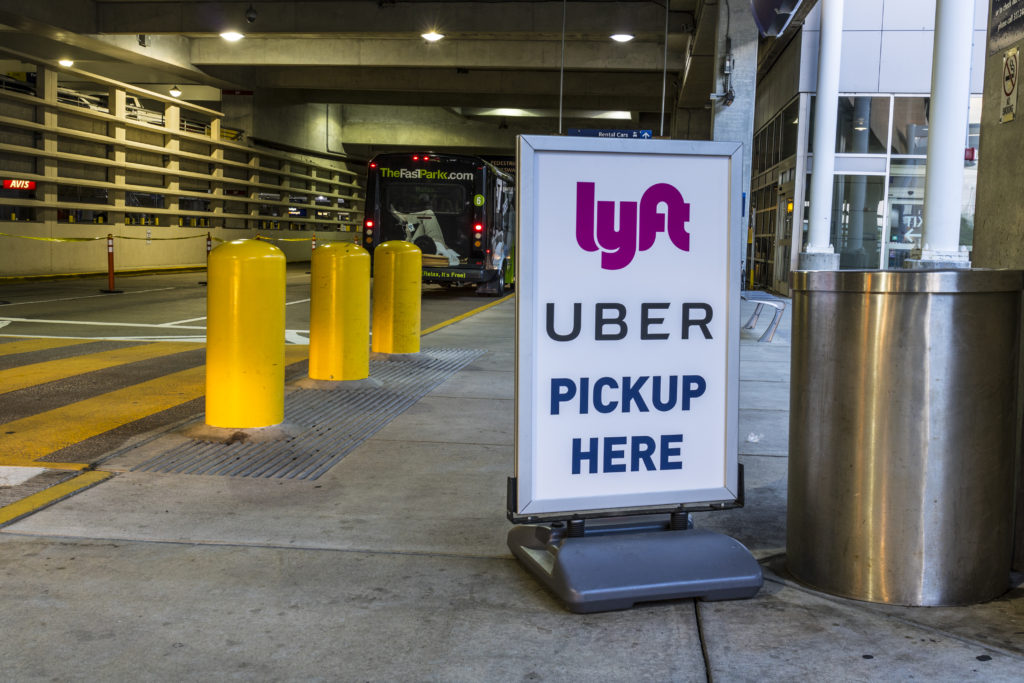Second Division Deems Arbitration Agreements Unconscionable and Executed by Fraud

In a decision recently certified for publication on October 22, 2021, the California Court of Appeals, Second Division, reviewed two versions of arbitration agreements executed between a group of employers and their employees. The decision stems from a class action lawsuit, Yeni Najarro et. al. v. Horizon Personnel Services Inc. et. al., wherein the employees filed eighteen employment related claims against their employers. The employers attempted to hide behind the different versions of arbitration agreements and compel the employees to dispute their claims before an arbitrator which would have prevented the employees from filing a lawsuit in court.
However, the Appellate Court determined that the arbitration agreements were unenforceable as the employee's consent to arbitration was secured by unconscionable terms and fraud in the execution of the agreements. This post will briefly highlight the big picture points of the Appellate Court's decision, and demonstrate how employees can overcome unfair arbitration agreements provided by their employers.
Arbitration Agreement Impact on Employees
We have written before the employers prefer arbitration for various reasons, but arbitration agreements may have a negative impact on employees and disadvantages employees after signing arbitration agreements. It is important to remember that there is an inherent imbalance of bargaining power at the time of hiring - with employers tending to hold all the power over employees. Many employers use this advantage by including arbitration clauses that deprive employees of their right to have their day in court - which was the situation in the Najarro case - and restrict employees in many other ways. The Srourian Law Firm and its attorneys have experience overcoming unfair arbitration agreements and securing employee's employment rights to have their day in court.
What makes an Arbitration Agreement Unconscionable?
In the Najarro class action lawsuit, although there was an arbitration agreement between the employers and employees which delegated power to an arbitrator to preside over and resolve disputes between employers and individual employees, the courts typically have the power to review all agreements or contracts for enforceability.
Unconscionability is one argument employees may raise to have an unfair agreement deemed unenforceable. In California, unconscionability is referred to as the absence of meaningful choice on the part of one party to a contract, and the contract terms unreasonably favor the other party involved in the contract. Unconscionability can be procedural - meaning that during the negotiation process one party may be oppressed or surprised due to having unequal bargaining power. Unconscionability can also be substantive - meaning the substance of the terms will result in overly harsh results to one party and one-sided favorable results to another party.
Applying the doctrine of unconscionability, the Second Division determined that one version of the arbitration agreement was unfair to employees, and therefore unenforceable, because the arbitration agreement (1) forced employee's to waive their right to file a class action lawsuit for employment related claims, (2) the employers did not countersign the agreement, which is required to demonstrate mutual intent to enter into an agreement, and (3) the employees were not provided a meaningful opportunity to negotiate the terms of the arbitration agreement with their employers. Here, the employees were pressured into signing arbitration agreements that took away their power to file a class action lawsuit in court. Underlying the lawsuit was the fact that the employees had difficulty understanding and speaking the English language which the court later addressed in its discussion of fraud in the execution of agreements.
What is Fraud in the Execution?
One key aspect of the Second Division's ruling in Najarro is the court's discussion of fraud in the execution of arbitration agreements and the implications it may have for employees that speak and or read English as a second, or maybe even third or fourth language. In California, a claim for fraud in the execution is not subject to arbitration where the facts can demonstrate that there was not mutual assent between employer and employee to enter into an agreement. Fraud in the execution of an agreement occurs when an employee signs an agreement but is deceived by the employer as to the nature of the agreement; and, the employee does not fully grasp the terms that he or she is agreeing to. In the event that this happens, the court will review the facts underlying the lawsuit in relation to the contract terms to determine whether or not the agreement is void or unenforceable.
In the Najarro lawsuit, the employees were not proficient at reading Spanish and English, nor were they proficient at speaking English. Additionally, the employers - taking advantage of the obvious language barrier - merely handed the arbitration agreements to the employees and referred to the agreement as being "unimportant". Moreover the employers took advantage of the employees by pressuring them to essentially "take it or leave it" when it came to accepting the offer for employment. The employers conditioned the employees employment on on whether or not the employees signed the arbitration agreement.
Basically, the employees were compelled by the employers to sign the arbitration agreement if they wanted to be employed. The employees were not given a reasonable opportunity to read the arbitration agreements or at least have an attorney interpret the agreement for them so that they could understand exactly what they were agreeing to, and what employment rights were being waived. When a situation like this happens, as was the case in Najarro, the court is likely to deem an agreement void or unenforceable because there is no clear intent or mutual assent that the disadvantaged party - here it was non-English speaking employees that also struggled to read Spanish and English - to mutually enter into an arbitration agreement waving vital employment rights.
Each case will depend on the specific facts, so it is important to consult with an experienced labor law attorney to assess the specifics of your case to determine if your employment rights are being violated by an unconscionable arbitration agreement.
Free Consultation
Srourian Law Firm, with locations in Los Angeles, Westwood, Woodland Hills, and Orange County is experienced in all aspects of employment law including arbitration agreements and filing class action lawsuits, and have aggressively represented employees in Los Angeles, Hollywood, Santa Monica, Orange, Irvine, Anaheim, Santa Ana, Newport Beach, Costa Mesa, Fullerton, Tustin, Mission Viejo, San Clemente, Garden Grove, Laguna Niguel, Brea, Fountain Valley, Aliso Viejo, Yorba Linda, Westminster, Laguna Hills, Cypress, and La Habra.
If you or someone you know suffered employment violations, you may have certain employee rights under state and federal law, and may be entitled to compensation as a part of a class action lawsuit. Please contact us to speak with one of our lawyers for a free consultation.
California Appellate Court Upholds Employee's Calculation of Unpaid Wages
In a decision submitted for official publication on October 14, 2021, the Court of Appeal of the State of California Second Appellate District Division Four upheld a trial court’s decision to enter judgment in favor of a warehouse employee for wage violations claims filed in a lawsuit against his former employer. The trial court awarded the employee $99,394.16, of which $42,792.00 accounted for unpaid overtime wages. The case, Byron Jerry Morales v Factor Surfaces LLC et. al., reaffirms California Labor Code and principles of employment law when calculating an employee’s regular rate of pay.
Case Background
Byron Jerry Morales was a warehouse employee employed by Factor Surfaces LLC. The company hired Morales in 2016. Morales performed a variety of duties, vital to the financial success of the company. Morales cleaned and sanitized the warehouse; he accepted shipments of supplies and equipment; he facilitated and personally made deliveries and pick-up of workplace materials; and, he engaged in customer service relations.
In 2018, the employment relationship between Morales and Factor soured, when Factor terminated Morales’s employment, after Morales asked to be compensated for unpaid overtime wages.
In 2019, Morales filed a lawsuit against his former employer, alleging that the company retaliated against him; the company violated California law by failing to maintain and provide employee records and wage statements; the company failed to pay overtime wages, along with meal and rest break compensation; and, for wrongful termination.
The Trial
At trial, Factor Surfaces LLC and its agents Gregory and Bianca Factor, both testified that the company was unable to produce as evidence Morales’s employment records and wage statements as required by statute. The employment records and wage statements would have indicated, at minimum, Morales’s regular rate of pay along with the number of days and hours he worked.
However, the company claimed that the records went “missing” after a truck owned by the company was stolen from inside a gated community. Supposedly, Morales’s employment records were inside the truck, and although the stolen truck was later recovered, the records were not. The company also testified that Morales was not paid commissions for sales.
Morales, however, was able to provide evidence at trial of his regular rate of pay and wage history with his former employer. Prior to March 9, 2018, Morales worked a full-time schedule at his former employer: 8:00 a.m. to 6:00 p.m. Monday through Friday and 9:00 a.m. to 5:00 p.m. on Saturdays. After March 9, 2018, Morales stated that he worked two (2) or three (3) Saturdays per month. Morales estimated that prior to March 9, 2018, he earned eighteen (18) hours of overtime per week, and after March 9, 2018, he earned approximately fourteen (14) hours of overtime per week because he was not working every Saturday.
Morales testified and provided evidence in the lawsuit that his regular rate of pay in 2016 was $120.00/per day, and that he received a three percent (3%) commissions on sales, which at the end of 2017, was reduced to one and a half percent (1.5%). Without explanation, the company cut Morales’s commission on sales to zero (0%). Also, at some point during Morales’s term of employment the company increased his weekly wages to $150.00/per day.

The Trial Decision
The issues of the trial ultimately boiled down to two questions: (1) which side of the lawsuit, Morales or Factor Surfaces, was more credible or believable based on their testimonies and evidence presented at trial; and (2) whether the trial court should accept Morales’s calculation of his regular rate of pay which included unpaid overtime wages and commission sales?
The trial court’s answer to the first question: Morales. In this case, the employee was found to be more credible than the former employer. Morales established that he performed work for the company that was not properly compensated; and, he provided sufficient evidence to demonstrate the amount and extent of work he performed. The burden then shifted to Factor Surfaces to provide accurate and complete employee records and wage statements as required by California law, and the employer could not. The best defense the company could raise was the documents were stolen. With that, the trial court accepted Morales’s calculation of his regular rate of pay while employed by Factor Surfaces. In result, the company filed an appeal challenging the trial court’s acceptance of the employee’s calculation of regular rate of pay.
The Appeal
The Court of Appeal reminds us that – under California Labor Code Sec. 510(4) – overtime pay means “any work performed by an employee in one workday, and work performed in excess of forty (40) hours in any one work week, must be compensated at no less than one-half time times the employee’s regular rate of pay.” Generally, commission workers receive compensation for their commission sales based on a different formula under California law.
However, in this case, because the employee was found to be more credible than the former employer; and the employer failed to provide any records as evidence, the Court of Appeal agreed that the trial court’s acceptance of Morales’s calculation of his regular rate of pay which included unpaid overtime wages and weekly commission sales was proper.
What does this mean?
What this means for employees is that the Court of Appeal is signaling one way to protect job interests against the unfair labor practices of employers. Employees may be able to do this by keeping copies of their wage statements, records of time worked, and work performance. The Court reiterates “where the employer has failed to keep records required by statute, the consequences for such failure should fall on the employer, not the employee. In such a situation, imprecise evidence by the employee can provide a sufficient basis for damages.”
The Court is saying that, even if the employee is not able to provide precise records, if the employee can at least present credible or believable testimony and records of the employee’s wage history and hours worked, it may be sufficient to shift the burden to the employer to prove otherwise; and, if the employer cannot prove otherwise, then it may lead to recovery of commission sales, unpaid overtime wages, and damages in a lawsuit. $25,000.00 of Morales’s award was for emotional distress damages.
Employees should practice saving and cataloguing their pay stubs or weekly paychecks; track missed meal or rest break periods; track duties performed at work and hours worked; and, track the number of wages earned from commission sales. This information could prove to be vital in a lawsuit for damages.
Each case will depend on the specific facts, so it is important to consult with an experienced labor law attorney to assess the specifics of your case to determine if you are owed additional compensation and unpaid overtime wages from your employer.
Free Consultation
Srourian Law Firm, with locations in Los Angeles, Westwood, Woodland Hills, and Orange County is experienced in all aspects of employment law including wage, labor, meal and rest break violations in the workplace, and have aggressively represented employees in Los Angeles, Hollywood, Santa Monica, Orange, Irvine, Anaheim, Santa Ana, Newport Beach, Costa Mesa, Fullerton, Tustin, Mission Viejo, San Clemente, Garden Grove, Laguna Niguel, Brea, Fountain Valley, Aliso Viejo, Yorba Linda, Westminster, Laguna Hills, Cypress, and La Habra.
If you or someone you know suffered employment violations, you may have certain employee rights under state and federal law, and may be entitled to compensation as a part of a class action lawsuit. Please contact us to speak with one of our lawyers for a free consultation.
Big Win in PA Court Case May Have Big Impact
A recent Pennsylvania Supreme Court decision may be a big win for all drivers who work for ride-hailing companies like Uber and Lyft. On July 27, 2020, the highest court in Pennsylvania held that a part-time Uber driver was not “self-employed,” The designation is significant because Uber has consistently argued in lawsuits across the country that drivers are independent contractors and self-employed, not employees.
By categorizing the estimated 2.6 million Uber drivers in the U.S. as being self-employed, Uber is not required to provide any federal or state benefits. In this case, however, the sole issue was whether his part-time work with Uber disqualified him from unemployment benefits because an applicant who engages in an independent business venture is not eligible for unemployment benefits. While the decision is not binding on other states, it could be a significant victory for all ride-hailing drivers as well as gig workers more broadly.

The case in Pennsylvania involves a laid-off behavioral specialist who started working for Uber part-time. The driver, however, was denied unemployment benefits because his part-time work with Uber was categorized as an “independent business venture.” The court, however, ruled that the driver was not self-employed because Uber had “significant control” over his work, and therefore eligible for unemployment benefits due to losing his full-time job as a behavioral specialist. The court acknowledged that drivers do have some autonomy such as setting work hours and rejecting rides, but overall, the court found that there were more significant aspects of the contract that Uber controlled. For example, Uber sets the rate for services, drivers cannot establish work relationships with passengers, and drivers cannot subcontract their work.
While the decision is good news for drivers, the court stopped short of saying the decision should be applied broadly because “individual decisions must be made in specific cases based upon the unique facts presented in each circumstance.” Similarly, the court did not hold that the driver was an “employee” of Uber, which is the question at the core of lawsuits across the country.
Currently, under federal and state laws, independent contractors are generally not eligible for certain employee benefits such as overtime pay, meal/rest breaks, and paid sick time. While that question remains unsettled, litigation is pending in California and around the world and millions of drivers wait anxiously for a favorable decision that would provide them with the benefits and protection they deserve under federal and state law.
FREE CONSULTATION
Srourian Law Firm, with locations in Los Angeles, Westwood, Woodland Hills, and Orange County is experienced in all aspects of employment law including the representation of ride-hailing drivers and have aggressively represented employees in Los Angeles, Hollywood, Santa Monica, Orange, Irvine, Anaheim, Santa Ana, Newport Beach, Costa Mesa, Fullerton, Tustin, Mission Viejo, San Clemente, Garden Grove, Laguna Niguel, Brea, Fountain Valley, Aliso Viejo, Yorba Linda, Westminster, Laguna Hills, Cypress, and La Habra.
If you or someone you know suffered employment violations as a ride-hailing driver, you may have certain employee rights under state and federal law, and may be entitled to compensation as a part of the class action lawsuit. Please contact us to speak with one of our lawyers for a free consultation.
FAQs on Severance Agreements: Should I sign it?

Learning that you are being laid off or fired from your job is stressful, to say the least. In many cases, your employer will offer you a severance package and ask you to sign a severance agreement. Before you sign any severance agreement, you should know your rights and protect yourself financially and professionally. You should also consult an attorney to ensure your severance agreement is accurate and fair.
Here are some FAQs about severance:
Q: What is a severance package?
A: A severance package refers to a payment or other benefits an employer offers an employee upon termination of employment. Generally, an employer is not required by law to offer a severance package to every employee unless there was a previous agreement included in the terms of employment. Nevertheless, many employers voluntarily offer a severance package in order to limit liability and as a way of assisting employees. Employees who are terminated for poor performance or terminated for cause are generally not entitled to severance.
Q: What is a severance agreement?
A: First and foremost, a severance agreement is a legally binding contract between you and your employer that indicates you have agreed to accept a severance package as a result of the termination of your employment. You should realize that you are agreeing to the terms of the agreement, and the agreement will be enforceable. Signing a severance agreement will usually mean that the employee agrees to give up (or waive) certain rights in exchange for the payment specified in the agreement. The most important right that an employee waives by signing a severance agreement is the right to sue the employer for any reason, such as harassment, discrimination, retaliation, wrongful termination, or violations of the California Labor Code. In other words, your employer is offering to give you a payment in exchange for a promise that you will not sue them for terminating your employment. Also, depending on the severance agreement, you may be giving up other rights as well such as a confidentiality clause that prohibits you from speaking about the termination. Because you are waiving important rights, you should always consult with an attorney before signing a severance agreement.
Q: Are severance agreements enforceable?
A: Yes. Since the severance agreement is a contract, it is legally binding and courts will generally enforce the terms of the contract. That means, for the most part, you are bound by the terms of the severance agreement. Of course, there are some employment rights that are not waiveable under a severance agreement, and even if they are included will not be enforceable. These include rights that are strictly protected under California and/or federal law such as a dispute over unpaid wages or overtime pay you may be entitled to. However, for the most part, a severance agreement is enforceable absent certain theories of contract law such as duress, fraud or unconscionability.
Q: Do I have to sign a severance agreement to receive a severance package?
A: Yes. By design, you will not receive your severance package unless you sign a severance agreement. That’s why it is important to consult an attorney so you fully understand the terms of the agreement. But before you sign a severance agreement, you are free to negotiate the terms of the severance package. Remember, a severance package is merely an offer that you are free to accept, reject or negotiate. Of course, if you do not agree to a severance package, you will not receive any severance payment or benefits.
Once you are told that your employment is being terminated, you should consult the employee handbook to see what rights and benefits you have as an employee as well as any pre-employment terms and agreements to ensure the severance package fairly reflects any prior agreements. Also, there are also certain benefits that are protected by law that you are entitled to after termination such as COBRA for health care, and ERISA for retirement benefits.
Q: Do I need an attorney?
A: Yes. In all legal matters, it is best to consult with an attorney, particularly in a stressful situation like losing your job. Even if you are caught off guard, don’t rush to accept a severance package or sign a severance agreement. You have certain rights as an employee that are protected by law, and you need an experienced labor attorney to ensure your rights are protected.
Labor law is quite complicated, and losing your job is stressful. You should consider consulting an attorney to advise you about relevant local, state and federal labor laws that are enacted to protect employees. Also, an attorney should review the severance agreement to ensure the terms are accurate and lawful. More importantly, an attorney can advocate for you during this difficult situation.
FREE CONSULTATION
Srourian Law Firm, with locations in Los Angeles, Westwood, Woodland Hills, and Orange County is experienced in all aspects of employment law including severance agreements and have aggressively represented employees in Los Angeles, Hollywood, Santa Monica, Orange, Irvine, Anaheim, Santa Ana, Newport Beach, Costa Mesa, Fullerton, Tustin, Mission Viejo, San Clemente, Garden Grove, Laguna Niguel, Brea, Fountain Valley, Aliso Viejo, Yorba Linda, Westminster, Laguna Hills, Cypress, and La Habra.
If you or someone you know suffered employment violations as an employee or need advice regarding a severance agreement, you should be aware of the employee rights and protections under state and federal law to ensure the severance package is fair and accurate. Please contact us to speak with one of our lawyers for a free consultation.
Cannabis Workers Protected under Federal Employment Law
According to a recent decision by the U.S. Court of Appeals for the Tenth Circuit, employees in the cannabis industry are protected under the Federal Labor Standards Act (FLSA) even though the sale of marijuana is prohibited under federal law.
In the case, Kenney v. Helix TCS, the lead plaintiff, security guard Robert Kenney, filed a suit against his former employer, Helix TCS, Inc., a service provider to the legal (state-sanctioned) cannabis industry. Kenney is seeking unpaid overtime pay, damages and costs on behalf of all similarly situation security guards and site supervisors.
Workers in the Cannabis Industry May Be Entitled to Overtime Pay
In the complaint, Kenney alleges that Helix misclassified all security guards as exempt employees. and failed to pay overtime required under the FLSA. In an unsuccessful motion to dismiss, defendant Helix maintains that the FLSA applies only to legal businesses, and the sale of recreational marijuana violates federal law. In essence, despite Colorado law allowing the sale of recreational marijuana, Helix argues that due to the federal Controlled Substances Act (CSA), Kenney, and all Helix employees, are essentially engaging in illegal “drug trafficking” and therefore not protected under the FLSA.
The appellate court affirmed the denial of defendant’s motion to dismiss and held that “employers are not excused from complying with federal laws just because their business practices are federally prohibited.” Moreover, the clear intent of the FLSA is to protect the workers’ well-being, and not to regulate potential illegal activities. Similarly, marijuana workers are not specifically exempt from the FLSA nor does the CSA repeal the protection guaranteed under the FLSA for workers in the cannabis industry. On the contrary, the FLSA has been amended to exclude certain categories of employees in response to the CSA, and has refused to exclude cannabis workers from protection under the FLSA.
The Definition of “Employee” Is Very Broad Under the FLSA
Notably, the U.S. Supreme Court has recognized the “striking breadth” of the definition of employee under the FLSA and purposefully expansive scope designed to maximize the full reach of the Act. As more states legalize the sale of recreational marijuana, this case serves as a reminder that workers in the cannabis industry are protected under the FLSA despite the CSA. Moreover, this is one example of how federal law will not trump a more permissive state law and allow employers in the cannabis industry to deny protections afforded under the FLSA.
California Marijuana Workers and Employee Rights under Federal and State Laws
The California courts have yet to decide the issue of cannabis industry workers and their employee rights under the FLSA. As the courts consider this issue, marijuana workers should be aware of their rights under the California Labor Code and the FLSA. In most cases, workers in the cannabis industry are protected and have employment rights including overtime wages, meal and rest breaks, and protection from missing wages or late paychecks.

FREE CONSULTATION
Srourian Law Firm, with locations in Los Angeles, Westwood, Woodland Hills, and Orange County is experienced in all aspects of employment law including wage and overtime pay and have aggressively represented employees in Los Angeles, Hollywood, Santa Monica, Orange, Irvine, Anaheim, Santa Ana, Newport Beach, Costa Mesa, Fullerton, Tustin, Mission Viejo, San Clemente, Garden Grove, Laguna Niguel, Brea, Fountain Valley, Aliso Viejo, Yorba Linda, Westminster, Laguna Hills, Cypress, and La Habra.
If you or someone you know suffered employment violations as an employee in the cannabis industry in California, you may have certain employee rights under state and federal law. Marijuana workers may be entitled to overtime wages, meal breaks and rest breaks; and may be entitled to compensation as a part of the class action lawsuit. Please contact us to speak with one of our lawyers for a free consultation.
FAQs on Arbitration

Often a job offer will include an employment contract that you are expected to sign. Understandably, as a prospective employee, you are anxious to be hired, so you may not give much thought to signing the contract. However, every employment contract will be unique, and you must be sure that the terms in the contract reflect the negotiations that lead to the job offer. More importantly, you need to make sure the contract is fair and your rights are protected by consulting with an experienced labor law attorney.
Q: What is arbitration?
A: Arbitration is a type of alternative dispute resolution that handles disputes without going to court. The dispute is decided by one or more neutral arbitrators after the parties present evidence and make arguments in an arbitration hearing. Some hearings also permit questioning witnesses. The rules of arbitration are less formal than a trial, but there are federal and state rules of arbitration that must be followed. Arbitration can be either binding or non-binding. In binding arbitration, the arbitrator’s decision may include an award for damages which is enforceable by law. In non-binding arbitration, the decision is merely “advisory” in nature, and the parties can either accept the decision, or pursue binding arbitration or a trial.
Q: What is an arbitration clause?
A: An arbitration clause is often included in agreements including employment contracts. The primary purpose of an arbitration clause is to require any dispute between the parties pursuant to the contract be settled by arbitration. In other words, if an employee alleges the employer has violated terms of the employment contract, the employee must resolve the dispute through arbitration instead of going to court. The arbitration clause, however, may designate arbitration as either “mandatory” or “voluntary.” Mandatory arbitration requires arbitration, while voluntary arbitration means the parties may chose arbitration by mutual agreement. Most employment contracts include a mandatory arbitration clause because employers generally prefer arbitration. Arbitration clauses can be complicated, and include many terms regarding venue, costs, procedures, scope of disputes, and selection of arbitrators. You should consult with an experienced labor law attorney before signing any arbitration clause to ensure your rights are protected. More importantly, your attorney can identify any unfair terms of the arbitration clause, and employment contract in general, and request modification.
Q: Should I sign an employment contract with an arbitration clause?
A: Whether you agree to an arbitration clause or not will depend on many factors, and you should consult with an experienced labor law attorney before signing any employment contract. You should realize that arbitration clauses, and employment contracts in general, are often written to favor the employer. With that said, your attorney can review the terms of the contract and advocate for your rights. Just as not all employment contracts are the same, arbitration clauses will differ as well. If you are asked to sign an employment contract, be sure to consult with an experienced labor law attorney, despite your eagerness to accept employment. You must protect your rights as an employee and take every step possible to ensure the terms of your employment are fair before signing an employment contract.
Q: Why do employers include arbitration clauses in employment contracts?
A: There are several reasons why employers prefer arbitration rather than a trial. First, arbitration is usually less expensive than a trial. Second, arbitration is considered a private resolution of a dispute between parties, and therefore would not be as public as a trial. Also, an unfavorable ruling against an employer would not be setting precedence for other employees, unlike case law. Third, many arbitration clauses in employment contracts prohibit employees from joining a class action lawsuit. Class action lawsuits are important to challenge wide-spread labor law violations, and employers discourage class actions which could result in significant legal fees, financial liability as well as bad publicity. Finally, because there is an inherent imbalance of bargaining power at the time of hiring, many employers use this advantage by including arbitration clauses that deprives employees of their rights to their day in court. This also provides an on-going advantage to the employer who knows that the employee is restricted by the arbitration clause.
FREE CONSULTATION
Srourian Law Firm, with locations in Los Angeles, Westwood, Woodland Hills, and Orange County is experienced in all aspects of employment law including employment contracts and arbitration clauses, and have aggressively represented employees in Los Angeles, Hollywood, Santa Monica, Orange, Irvine, Anaheim, Santa Ana, Newport Beach, Costa Mesa, Fullerton, Tustin, Mission Viejo, San Clemente, Garden Grove, Laguna Niguel, Brea, Fountain Valley, Aliso Viejo, Yorba Linda, Westminster, Laguna Hills, Cypress, and La Habra.
If you or someone you know suffered employment violations due to an unfair employment contract or arbitration clause, you may have certain employee rights under state and federal law, and may be entitled to compensation as a part of the class action lawsuit. Please contact us to speak with one of our lawyers for a free consultation.
Know the Law. Know your Rights.

Under California labor law, overtime wages must be paid when an eligible employee works overtime. Make sure your rights are protected when you work overtime. Here are some FAQs about overtime wages:
When am I entitled to overtime wages?
According to California labor law, a work day consists of eight hours of labor, and a workweek consists of no more than 40 hours a week. Any additional hours beyond eight hours per day or 40 hours per week are considered “overtime” and employees are entitled to overtime wages. Under the law, overtime wage must be at least one and one-half times the regular rate of pay. Moreover, any employee who works more than 12 hours in one day shall be entitled to overtime pay of no less than two times the regular rate of pay. There are additional overtime requirements for employees who work more than eight hours on their seventh consecutive workday,
Not every employee is entitled to overtime pay however. There are some narrow exemptions based on salary and job description, and in cases where a flexible work schedule is agreed upon. Also, some hours such as travel time, is not considered part of the workday.
How is overtime pay calculated?
Overtime pay is based on the employee’s regular hourly rate of pay. If the employee earns a salary, then the hourly rate is calculated by dividing the annual salary by 52 weeks, and the weekly pay is further divided by 40 hours. If an employee receives different rates of pay, then overtime is calculated by a weighted average of the rate.
What happens if I don’t get overtime pay?
An employer who fails to pay the lawful overtime wage to an eligible employee has broken the law. In that case, an employee has the right to sue under California law. According to California labor code section 1194, the employee may be able to recover the unpaid balance plus interest, as well as attorney’s fees and costs.
California labor law also requires overtime pay to be included in the next schedule paycheck. This is required by law regardless of any administrative delays such as having a supervisor approve the overtime.
Can I decline overtime pay?
Under California labor law, an employee cannot decline overtime pay if they are eligible. In other words, an employee cannot tell an employer that they will work overtime at the regular hourly rate. The reason for this is because California labor laws are designed to protect employees and are among the most strict and specific in the country. Allowing employees to waive their state rights to overtime pay is not good public policy and may be harmful to employees overall.
Also, employees cannot hide the fact that they are starting “overtime” hours from employers. This means that an employee cannot prevent employers from knowing they are about to accrue overtime hours, and therefore allow the employer the opportunity to prevent the employee from working overtime hours.
FREE CONSULTATION
Srourian Law Firm, with locations in Los Angeles, Westwood, Woodland Hills, and Orange County is experienced in all aspects of employment law including overtime wages and have aggressively represented employees in Los Angeles, Hollywood, Santa Monica, Orange, Irvine, Anaheim, Santa Ana, Newport Beach, Costa Mesa, Fullerton, Tustin, Mission Viejo, San Clemente, Garden Grove, Laguna Niguel, Brea, Fountain Valley, Aliso Viejo, Yorba Linda, Westminster, Laguna Hills, Cypress, and La Habra.
If you or someone you know suffered employment violations as an employee such as not receiving overtime pay in California, you may have certain employee rights under state and federal law and may be entitled to unpaid wages, interest, attorneys’ fees and costs, and/or be entitled to compensation as a part of the class action lawsuit. Please contact us to speak with one of our experienced lawyers for a free consultation.







